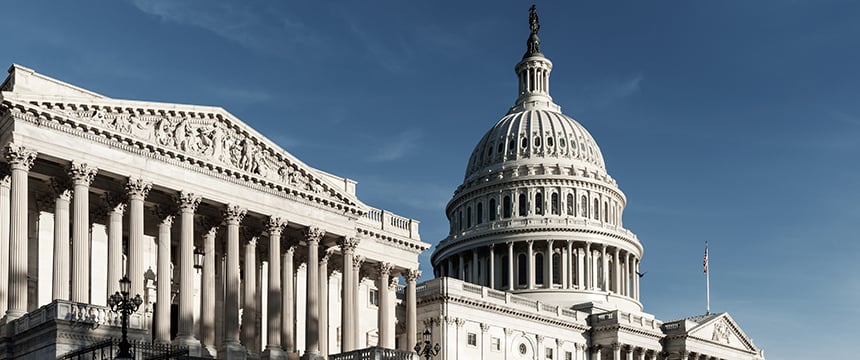Biden Administration Announces New Efforts to Promote Competition in Health Care

On December 7, 2023, the Biden Administration announced several new initiatives intended to “promote competition” in the health care sector. These initiatives reflect a broad range of concerns about rising costs in health care, including pointed references to “price gouging” and “profiteering” by private equity and big business. These initiatives build on the dozens of other regulatory efforts that President Biden ordered in his 2021 Executive Order on Promoting Competition in the American Economy. They also complement a number of enforcement actions, guidance statements, and rulemakings that the Federal Trade Commission (FTC), Department of Justice (DOJ), and Department of Health and Human Services (HHS) have taken over the past three years to promote competition in the health care sector, which those agencies highlighted in a press release issued at the same time as the White House’s announcement.
The initiatives announced on December 7 include the following:
- HHS, FTC, and DOJ are taking steps to promote the sharing of data among themselves to identify so-called “roll-up” acquisitions, such as mergers or acquisitions that may be too small to require reporting to the FTC or DOJ under the Hart-Scott-Rodino Antitrust Improvements Act, but which nevertheless can potentially create competitive issues. This announcement builds on the FTC and DOJ’s ongoing efforts to revise the federal Merger Guidelines to specifically address the issue of “serial acquisitions” that may have a cumulative effect of lessening competition, and also continue prior efforts to promote the exchange of data between HHS and antitrust enforcers.
- HHS and the Department of Commerce have released a new proposed framework for the exercise of “march-in” rights under the Bayh-Dole Act. In short, for pharmaceuticals, medical devices, or other inventions whose development was funded by taxpayers, the Bayh-Dole Act allows the federal government under certain circumstances to license the invention to a third party. The new proposed framework would, for the first time, allow the government to consider pricing as a factor in determining whether to exercise these so-called march-in rights.
- In the near future, the DOJ, FTC, and HHS will issue a joint Request for Information to the public, seeking information on the topic of “corporate greed in health care.” (Or, as the White House Fact Sheet somewhat more diplomatically puts it, on “how private equity and other corporations’ increasing power and control of our health care is affecting Americans.”) This Request for Information will be used to identify areas for future regulatory and enforcement activity by these agencies.
- HHS, FTC, and DOJ are creating new administrative roles within their respective organizations. HHS will appoint a new “Chief Competition Officer.” And FTC and DOJ will both appoint “Counsels for Health Care,” with responsibility for leading antitrust enforcement efforts in health care. It is not immediately clear whether these positions will replace or overlap with other existing positions, such as the Director for Health Care that already exists within the FTC’s Bureau of Competition, or the Deputy Assistant Attorney General for the Healthcare and Consumer Products Section that already exists within the DOJ’s Antitrust Division.
- Finally, the Centers for Medicare & Medicaid Services (CMS) is taking steps to increase the transparency of certain data it keeps about health care organizations. For the first time, CMS will publicize data about the ownership of Federal Qualified Health Centers and Rural Health Clinics. CMS will also explore ways to increase the transparency of data about Medicare Advantage plans and performance, starting with a request for information from the public on this topic to begin in early 2024.
Together, the new initiatives underscore the Biden Administration’s efforts to promote competition and value across the health care sector. Expect the Administration to continue highlighting these efforts as a key component of the President’s “Bidenomics” agenda in the months ahead of the 2024 election.
Foley is here to help you address the short- and long-term impacts in the wake of regulatory changes. We have the resources to help you navigate these and other important legal considerations related to business operations and industry-specific issues. Please reach out to the authors, your Foley relationship partner, or to our Health Care Practice Group with any questions.

